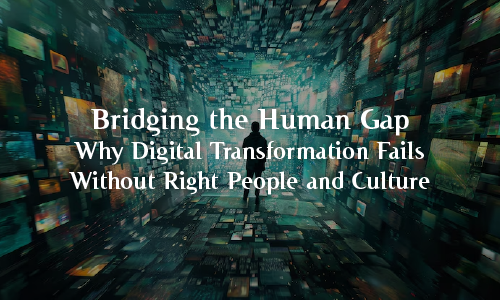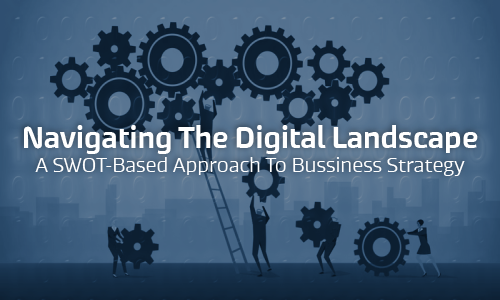
Summary: Digital transformation is no longer a strategic option—it is a necessity for organizations aiming to stay competitive in a rapidly evolving marketplace. While technology plays a central role in this shift, success largely hinges on human factors. This paper explores how the lack of skilled digital talent and resistant organizational cultures are the primary obstacles delaying or derailing transformation initiatives. Drawing from industry data, it highlights the widespread impact of skill shortages in critical areas such as AI, cybersecurity, and data analytics, as well as the business consequences of cultural resistance and strategic misalignment. The paper further outlines practical strategies for overcoming these challenges, including workforce planning, upskilling, inclusive change management, and aligning digital initiatives with business goals. Ultimately, it argues that the true enabler of digital transformation lies not in the technology itself, but in the people who drive, support, and adopt it.
Introduction: Opening Perspective
In today’s business world, going digital is no longer optional it’s the key to staying relevant. From automating operations to unlocking smarter decision-making through data, digital transformation promises a competitive edge. Yet despite significant investments in technology, many organizations still find their digital efforts falling short. The reason? It’s not just about the tech it’s about people. When there are gaps in skills or when a company’s culture resists change, even the most cutting-edge tools won’t succeed.
Across industries, businesses are facing two major challenges: a lack of skilled digital talent and internal cultures that struggle to embrace change. These twin issues are delaying projects, reducing product quality, frustrating customers, and hitting revenue targets. This article explores how these human challenges impact digital transformation, what the business consequences look like, and how companies can respond with practical, people-first strategies.
The Talent Crunch: A Barrier to Progress
Digital tools may be evolving rapidly, but the availability of skilled professionals isn’t keeping pace. Roles requiring expertise in AI, machine learning, cybersecurity, automation, and data analytics are in high demand and short supply. For many companies, finding qualified talent in these areas has become one of their biggest roadblocks.
The numbers are telling: around 67% of digital transformation initiatives are running behind schedule simply…












